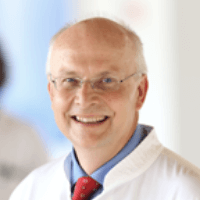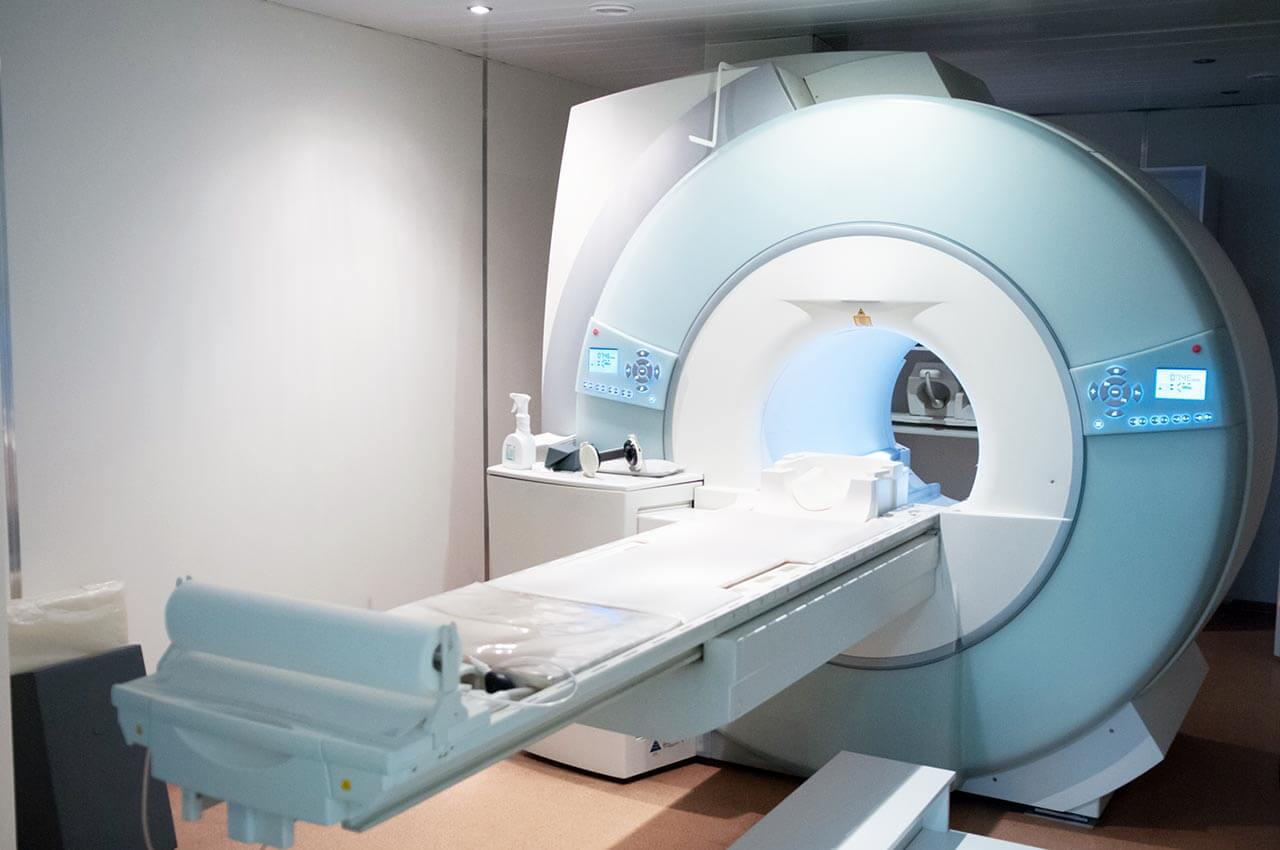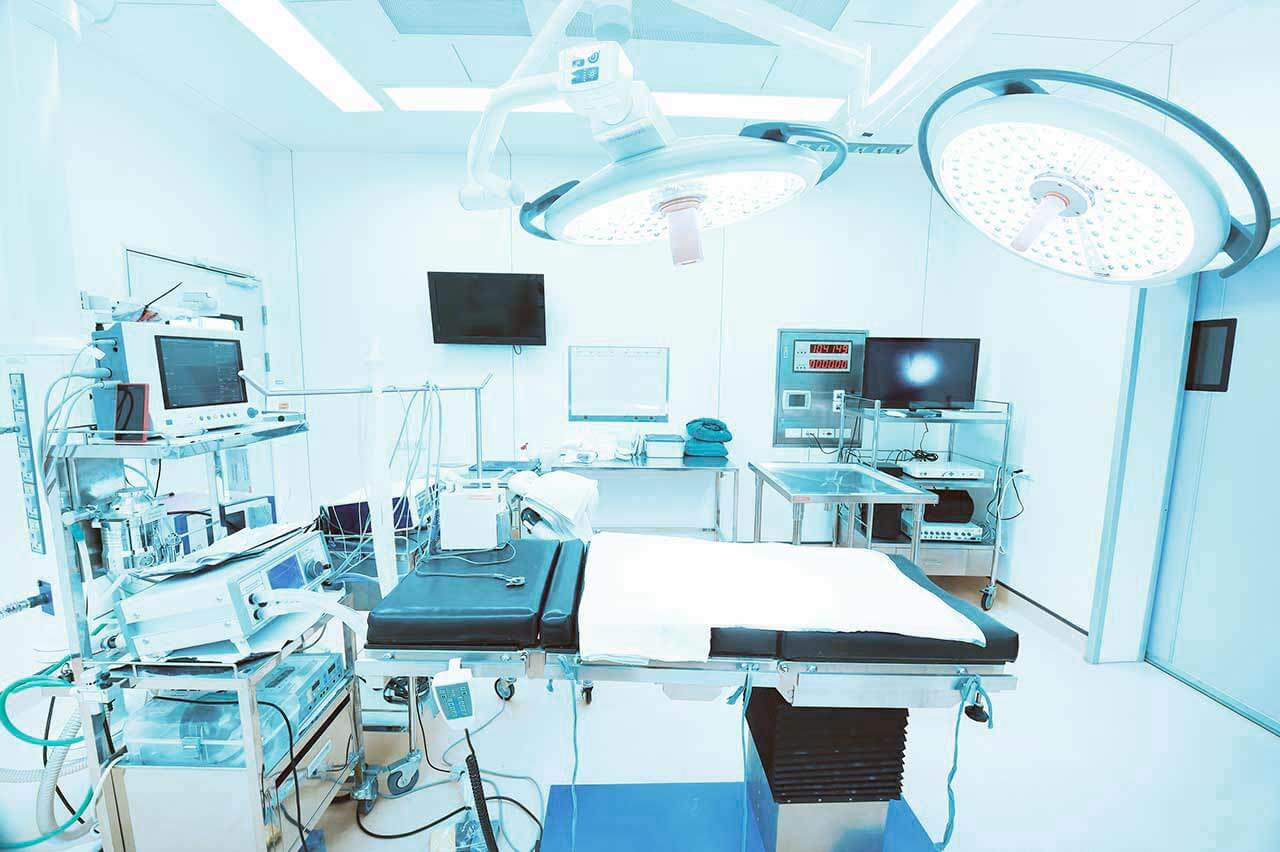
The program includes:
- Initial presentation in the clinic
- clinical history taking
- review of medical records
- physical examination
- laboratory tests:
- complete blood count
- biochemical analysis of blood
- thyroid function test (TSH-basal, fT3, fT4)
- mineral metabolism analysis (Na, K, Ca, Mg)
- lipid metabolism (HDL/LDL, cholesterol, triglycerides,
Lip(a), homocysteine) - iron content (ferritin, iron)
- blood coagulation analysis (aPTT, PT, INR)
- metabolic status (uric acid, total glucose, HbA1c)
- inflammatory parameters (CRP, ESR)
- cardiovascular disease risk markers
- vascular system assessment
- lung function test (Spirometry)
- resting and exercise ECG
- vessel elasticity measurement
- body fat and water examination
- color doppler echocardiography
- color doppler sonography of cerebral vessels
- measurement of arterial blood pressure electrocardiogram
- Holter monitoring (24h)
- preparation according to preoperative standard
- сardioverter- defibrillator implantation 1 chamber
- symptomatic treatment
- control examinations
- the cost of essential medicines and materials
- nursing services
- full hospital accommodation
- explanation of future recommendations
Required documents
- Medical records
- Echocardiography (if available)
Service
You may also book:
 BookingHealth Price from:
BookingHealth Price from:
About the department
According to the Focus magazine, the Department of Cardiology at the University Hospital Tuebingen ranks among the top German departments specializing in the treatment of cardiovascular diseases!
The department offers a wide range of services for the diagnostics and treatment of heart diseases. The priorities of the clinical activities include the treatment of coronary heart disease, arrhythmias, cardiomyopathy and heart failure. The department's doctors also have advanced experience in the field of non-invasive imaging diagnostics of cardiac pathologies. The Chief Physician of the department is Prof. Dr. med. Meinrad Paul Gawaz.
The department operates a state-of-art Chest Pain Unit, which is certified in accordance with the standards of the German Society of Cardiology. The patients with life-threatening and emergency cardiac conditions receive a competent medical care here. The medical team of the unit possesses the special qualifications and skills for the provision of the most prompt and effective medical care.
It is necessary to note that the department has gained an excellent reputation in the treatment of aortic stenosis. Since 2008, it has performed more than 900 procedures for the treatment of this disease, and almost all of them were successful. The department is one of the few in Germany and around the world, which successfully treats aortic stenosis using sparing techniques and, as a rule, without general anesthesia, which guarantees the highest level of safety for a patient.
The service range of the department includes:
- Non-invasive imaging diagnostics of cardiac diseases
- Diagnostics and treatment of aortic valve stenosis (a sparing method of transcatheter aortic valve implantation (TAVI))
- Diagnostics and interventional treatment of mitral valve failure (MitraClip technique)
- Diagnostics and conservative treatment of heart failure
- Diagnostics and treatment of atrial fibrillation
- Drug therapy
- Radiofrequency ablation, cryoablation, Roboterarm system for particularly difficult cases
- Diagnostics and treatment of ventricular tachycardia
- Drug therapy
- Radiofrequency ablation
- Cryoablation
- Diagnostics and treatment of blood clotting disorders and thrombosis (including thrombosis of the coronary vessels)
- Diagnostics and treatment of other cardiac pathologies
Curriculum vitae
Scientific Activities
- 1981 - 1987 Study of Medicine at the Universities of Bochum, Ulm, Munich, Cambridge (England) and Stanford (USA).
- 1988 - 1989 Research Fellow at the Institute of Physiology, Ludwig Maximilian University of Munich (Prof. Dr. Martin Klingenberg).
- 1989 - 1991 Scholarship of the German Research Foundation at the University of Louisville (USA) and Scripps Research Institute (USA) (Dr. Mark Ginsberg).
- 1991 - 1993 Research Fellow in the Department of Internal Medicine I, Grosshadern Hospital at the Ludwig Maximilian University of Munich (Prof. Dr. G. Riecker).
- 1993 - 1997 Research Fellow in the Department of Internal Medicine I, University Hospital Rechts der Isar of the Technical University of Munich (Prof. Dr. A. Schömig).
- Since 1997, Senior Physician in the Department of Internal Medicine I, University Hospital Rechts der Isar, German Heart Center Munich, Technical University of Munich.
- 1995 Habilitation and Venia Legendi in Internal Medicine, Technical University of Munich.
- 1996 Specialization in Cardiology.
- 1999 Appointed as an Extraordinary Professor, Technical University of Munich.
- 2004 Alexander Schmidt Prize of the Society for Thrombosis and Hemostasis.
- 2004 Specialization in Angiology.
- Since 10.2004, Head of the Department of Cardiology at the University Hospital Tuebingen, as well as (C4) Full-time Professor of Internal Medicine/Cardiology, University of Tuebingen.
Professional Memberships
- German Society of Internal Medicine.
- German Society of Cardiology.
- German Society for Internal Intensive Care and Emergency Medicine.
- Society for Thrombosis and Haemostasis Research
- German Atherosclerosis Society.
- European Society of Cardiology.
- European Platelet Group.
- German Society of Angiology.
- International Society for Thrombosis and Hemostasis.
Main Research Focuses
- Inflammation and thrombosis mechanisms.
- Microcirculation in ischemia.
- Atherogenesis and atherosclerosis.
- Platelet function.
- Cell adhesion and regeneration.
- Platelet interaction with progenitor cells.
- Antithrombotic therapy in patients with high cardiovascular risk.
Photo of the doctor: (c) Universitätsklinikum Tübingen
About hospital
According to the prestigious medical publication Focus, the University Hospital Tuebingen ranks among the top five German hospitals!
The hospital was founded in 1805, therefore it is proud of its long history, unique experience, and outstanding achievements in the field of medical care, as well as research and teaching activities. Nowadays, it is one of the most advanced medical institutions, which provides a wide range of general and highly specialized medical services. The hospital combines the state-of-art medical technologies in the field of diagnostics and the very latest treatment methods of a wide range of diseases.
The hospital has 17 specialized departments, which cover almost all fields of modern medicine and contribute to the top-class medical service in Germany. It treats about 367,000 outpatients and 74,000 inpatients annually. This testifies to the high authority of the hospital at the national and international medical arena. This is the first German hospital, which confirmed the high quality of healthcare and the effectiveness of service with a KTQ certification (in 2009).
Photo: (с) depositphotos
Accommodation in hospital
Patients rooms
The patients of the University Hospital Tuebingen live in comfortable single and double rooms with an ensuite bathroom equipped with a shower and toilet. The beds in the patient rooms are equipped with orthopedic mattresses that promote good and full sleep. There is a TV in the room, and it is also possible to connect a smartphone or laptop to the Internet. In addition, there is enough space in the patient room to receive 2-3 guests without inconvenience for the second patient.
The enhanced-comfort rooms include a hairdryer, heated towel rail, a large mirror, a direct dial telephone, a flat-screen satellite TV, a writing desk, free Internet access, a mini-bar and a refrigerator.
Meals and Menus
The patients of the hospital are offered tasty and healthy three meals a day: breakfast, lunch and dinner. Breakfast is served as a buffet, while for lunch and dinner there is a choice of several menus. Also, if desired, the patient will be provided with an individual menu. There are several cafes and cafeterias on the territory of the hospital, where one can have a tasty meal or enjoy a cup of coffee, tea and dessert.
Further details
Standard rooms include:
Religion
Religious services are available upon request.
Accompanying person
During the inpatient program, an accompanying person can stay with you in a patient room or in a hotel of your choice.
Hotel
During the outpatient program, you can stay in a hotel of your choice. Our managers will help you choose the most suitable option for you.




